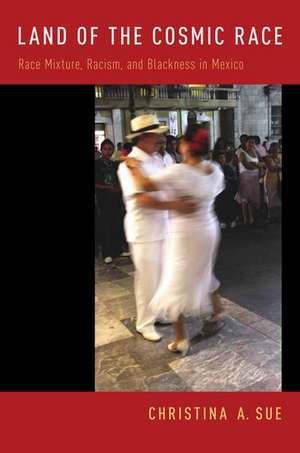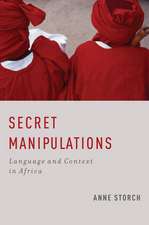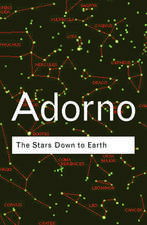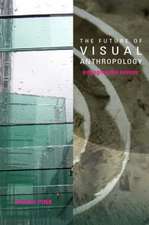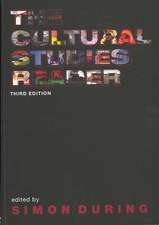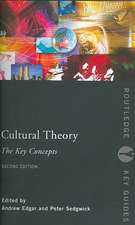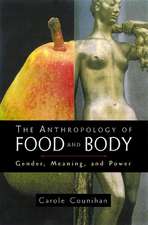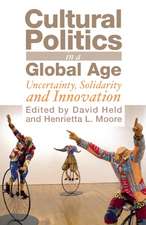Land of the Cosmic Race: Race Mixture, Racism, and Blackness in Mexico
Autor Christina A. Sueen Limba Engleză Paperback – 7 mar 2013
| Toate formatele și edițiile | Preț | Express |
|---|---|---|
| Paperback (1) | 227.94 lei 31-38 zile | |
| Oxford University Press – 7 mar 2013 | 227.94 lei 31-38 zile | |
| Hardback (1) | 686.72 lei 31-38 zile | |
| Oxford University Press – 7 mar 2013 | 686.72 lei 31-38 zile |
Preț: 227.94 lei
Nou
Puncte Express: 342
Preț estimativ în valută:
43.62€ • 45.54$ • 36.10£
43.62€ • 45.54$ • 36.10£
Carte tipărită la comandă
Livrare economică 24-31 martie
Preluare comenzi: 021 569.72.76
Specificații
ISBN-13: 9780199925506
ISBN-10: 019992550X
Pagini: 256
Ilustrații: 2 photographs
Dimensiuni: 155 x 231 x 18 mm
Greutate: 0.34 kg
Editura: Oxford University Press
Colecția OUP USA
Locul publicării:New York, United States
ISBN-10: 019992550X
Pagini: 256
Ilustrații: 2 photographs
Dimensiuni: 155 x 231 x 18 mm
Greutate: 0.34 kg
Editura: Oxford University Press
Colecția OUP USA
Locul publicării:New York, United States
Recenzii
This is an outstanding ethnography of race in Mexico. Christina Sue understands the beauty and depth of everyday Mexican identity and cultural life. She adds to that a profound grasp of the country's unique racial history and social structure. The result is a definitive study that reinterprets mestizaje, that recognizes the blackness that has been hidden for so long, and that reveals the poetic and emotional soul of Mexican society today. Very well-written and accessible, Land of the Cosmic Race is both a triumph of scholarship and an indispensable text for course use. Highly recommended!
In Mexico, the official ideology of mestizaje has provided a master narrative in which the mixture of Indians and Spaniards functioned as a powerful antidote to racism. In her innovative study of race and skin color, Christina Sue combines ethnography and discourse analysis to explore how people of different classes negotiate the contradictions between the mestizaje ideology and their everyday experiences. While avoiding the use of the term race, most of her informants express a 'non-racist common sense,' accepting the social value of light skin but minimizing its significance as a factor of negative discrimination. Sue dexterously argues that such common sense reflects the national ideal of unity and fairness, but also hinders the effective critique of crucial aspects of Mexico's social inequalities.
The Land of the Cosmic Race exposes the popular underbelly of Mexico's racial ideology, which stresses racial mixture while denying racism and blackness. Based on the port city of Veracruz, where at least 200,000 Africans had disembarked as slaves, Christina Sue's ethnography vividly explores how ordinary Mexicans make sense of race, racism, color and nation. At the same time, this book reveals how personal experiences interact with powerful national ideologies. Anyone who believes that Mexico has little or no racism, should read this carefully-researched book.
Land of the Cosmic Race is a richly-detailed ethnographic account of the powerful role that race and colour play in organizing the lives and thoughts of ordinary Mexicans. It presents a previously untold story of how individuals in contemporary urban Mexico construct their identities, attitudes, and practices in the context of a dominant national belief system. Carefully presented and self-consciously written, this is an excellent book for anyone with an interest in how Mexican racial politics can be seen to operate on the ground.
In Land of the Cosmic Race, Christina Sue offers an ambitious, data-rich ethnography set in the blackest area of Mexico: the port city of Veracruz. Sue presents very rich qualitative data, drawn from respondents across the spectra of color and class. The content of the interviews, in particular, is quite revealing, and the impression is that the author has attained a broad and deep cross section of perspectives.
In Mexico, the official ideology of mestizaje has provided a master narrative in which the mixture of Indians and Spaniards functioned as a powerful antidote to racism. In her innovative study of race and skin color, Christina Sue combines ethnography and discourse analysis to explore how people of different classes negotiate the contradictions between the mestizaje ideology and their everyday experiences. While avoiding the use of the term race, most of her informants express a 'non-racist common sense,' accepting the social value of light skin but minimizing its significance as a factor of negative discrimination. Sue dexterously argues that such common sense reflects the national ideal of unity and fairness, but also hinders the effective critique of crucial aspects of Mexico's social inequalities.
The Land of the Cosmic Race exposes the popular underbelly of Mexico's racial ideology, which stresses racial mixture while denying racism and blackness. Based on the port city of Veracruz, where at least 200,000 Africans had disembarked as slaves, Christina Sue's ethnography vividly explores how ordinary Mexicans make sense of race, racism, color and nation. At the same time, this book reveals how personal experiences interact with powerful national ideologies. Anyone who believes that Mexico has little or no racism, should read this carefully-researched book.
Land of the Cosmic Race is a richly-detailed ethnographic account of the powerful role that race and colour play in organizing the lives and thoughts of ordinary Mexicans. It presents a previously untold story of how individuals in contemporary urban Mexico construct their identities, attitudes, and practices in the context of a dominant national belief system. Carefully presented and self-consciously written, this is an excellent book for anyone with an interest in how Mexican racial politics can be seen to operate on the ground.
In Land of the Cosmic Race, Christina Sue offers an ambitious, data-rich ethnography set in the blackest area of Mexico: the port city of Veracruz. Sue presents very rich qualitative data, drawn from respondents across the spectra of color and class. The content of the interviews, in particular, is quite revealing, and the impression is that the author has attained a broad and deep cross section of perspectives.
Notă biografică
Christina A. Sue is Assistant Professor of Sociology at the University of Colorado at Boulder.
